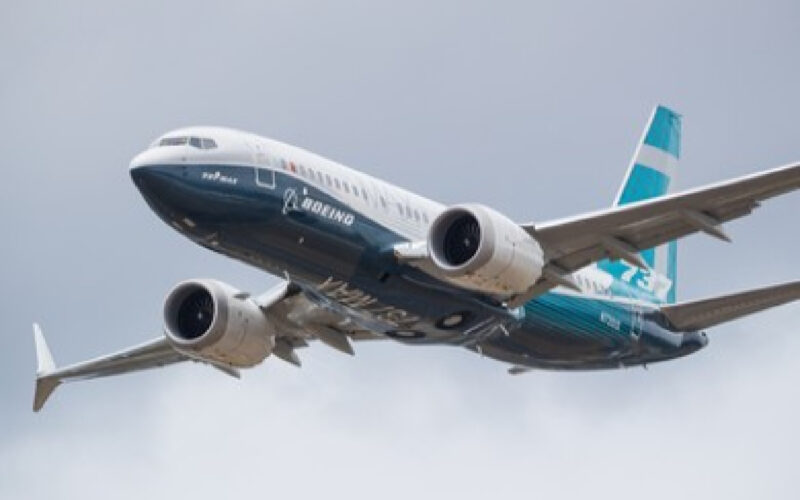A judge in the United States (US) dismissed an interlocutory appeal from several plaintiffs accusing Boeing and Southwest Airlines (LUV) defrauding them by concealing a serious safety defect present on the 737 MAX-8 jet.
Andrew S. Oldham, Judge for the 5th U.S. Circuit Court of Appeals in New Orleans, which has jurisdiction over several districts within Louisiana, Mississippi, and Texas, ruled that the “plaintiffs have not plausibly alleged that any class member suffered either physical or economic injury from Boeing’s and Southwest’s alleged fraud.”
Overpaying for 737 MAX tickets
According to the case, filed on November 21, 2022, the 11 named appellees, who also attempted to represent everyone who bought a flight ticket from American Airlines (A1G) (AAL) and Southwest Airlines (LUV) between August 29, 2017, and March 13, 2019, stated that passengers overpaid for said tickets and suffered economic injury.
“The actual prices of the tickets that were purchased as a result of the misrepresentations by Southwest and Boeing about the safety of the MAX 8 and MAX Series Aircraft were significantly higher than the value of those tickets, which for many, if not most, passengers was zero,” the court documents stated.
While American Airlines (A1G) (AAL) was not one of the defendants in this particular case, the plaintiffs included the carrier as “the same Boeing-Southwest conspiracy that caused passengers to fly on a MAX 8 on Southwest Airlines (LUV),” which also caused travelers to purchase tickets and fly on the 737 MAX with other airlines, which includes American Airlines (A1G) (AAL).
“They would not have done so but for the Boeing-Southwest conspiracy, which hid safety issues with the airplane,” the allegations continued.
At the heart of the lawsuit was the infamous Maneuvering Characteristics Augmentation System (MCAS) flight control system on Boeing’s latest generation of its narrow-body aircraft. “[…] Defendants omitted references to MCAS in flight crew documentation and misled the Federal Aviation Administration (“FAA”) about the significance and operation of MCAS,” the court documents continued.
“Southwest wanted Boeing to convince the FAA that the MAX 8 and a previous 737 variant—the 737 NG—were so similar that pilots did not need to complete new flight-simulator training for the MAX 8,” the plaintiffs argued.
The court dismissed the plaintiffs’ claims for lack of standing as the alleged risk of injury never materialized. “If Plaintiffs had known the MAX 8 was fatally defective, Plaintiffs would never have purchased a ticket, so Plaintiffs want their money back,” the court concluded.
But the group of passengers included the “overcharge-by-fraud” theory, which “seeks to recover for a purported economic injury rather than any risk of physical injury,” the court’s document noted. However, Oldham ruled that the economic injury theory is unsupportable.
“First, plaintiffs assume that if there was widespread public knowledge during the class period of the MCAS defect, Southwest and American Airlines (A1G) (AAL) would have continued offering the same MAX 8 flights—but with a price discount to compensate for the heightened risk that passengers would die,” the lawsuit continued.
Secondly, according to 5th Cir., even if the appellees alleged that the FAA would have allowed companies to operate the 737 MAX with full knowledge that there were issues with MCAS, “after the public learned the full extent of the risk caused by the MCAS defect, regulators worldwide grounded the MAX 8.”
The FAA first grounded the Boeing 737 MAX-8 on March 13, 2019, before allowing it to fly again in November 2020. A few months later, Transport Canada (TC) and the European Aviation Safety Agency (EASA) joined the US-based regulator in allowing the type to fly again.
However, the 737 MAX-7 and the 737 MAX-10 have still not been cleared to fly, as Boeing is struggling to gain certification for the two types.
Judge Oldham indicated that if the FAA knew about MCAS’ defects, and the 737 MAX would have been removed from American Airlines (A1G) (AAL) and Southwest Airlines’ (LUV) routes, “that would have caused ticket prices to go up, not down, because of the reduced aircraft supply,” in both carriers’ networks.
Thus, even if the plaintiffs alleged potential physical or economic injury, “because that risk never materialized, plaintiffs have suffered no injury in fact,” as such, the “case therefore must be dismissed.”

